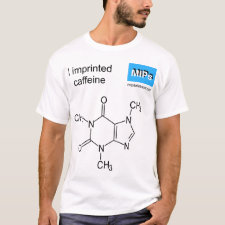
Authors: Jin YZ, Row KH
Article Title: Molecularly imprinted solid-phase extraction of caffeine from green tea.
Publication date: 2006
Journal: Journal of Industrial and Engineering Chemistry
Volume: 12
Issue: (3)
Page numbers: 494-499.
Alternative URL: http://www.cheric.org/PDF/JIEC/IE12/IE12-3-0494.pdf
Abstract: In this study, caffeine was extracted from green tea by using molecularly imprinted polymers (MIP) as sorbent materials in solid-phase extraction (SPE), a technique known as MISPE (molecularly imprinted solid-phase extraction). For synthesis of the MIP, caffeine as the template, MAA as the monomer, EGDMA as the crosslinker, and AIBN as the initiator were used. A solution of caffeine (0.2 mg/mL in methanol) was utilized to the solid extraction cartridges following loading, washing, and elution procedures with acetonitrile, methanol, and methanol-acetic acid (90/10, %v/v) as solvents, respectively. This solid-phase extraction protocol was applied to the extraction of caffeine from green tea. A comparison was made between the results obtained with the MIP, blank polymer cartridges, and a traditional C-18 reversed-phase cartridge. The recovery obtained using the MIP-based sorbent was almost two times higher than that obtained using a commercially available C-18 is material. The analysis was performed through high-performance liquid chromatography (HPLC) using a C-18 column (5 μm, 250 x 4.6 mm) with methanol-water (40/60, %v/v) as the mobile phase at a flow rate of 0.5 mL/min
Template and target information: caffeine
Author keywords: molecular imprinted solid-phase extraction (MISPE), caffeine, recovery, selectivity



Join the Society for Molecular Imprinting

New items RSS feed
Sign-up for e-mail updates:
Choose between receiving an occasional newsletter or more frequent e-mail alerts.
Click here to go to the sign-up page.
Is your name elemental or peptidic? Enter your name and find out by clicking either of the buttons below!
Other products you may like:
 MIPdatabase
MIPdatabase









